Los Lobos Performs On ‘Kimmel’
Watch the band play “Love Special Delivery” as well as a three-song off-air set.
Los Lobos served as the musical guests on Tuesday’s episode of Jimmy Kimmel Live. The Los Angeles-based rock band performed “Love Special Delivery” by Thee Midniters for the broadcast and also played a three-song set off-air for the Kimmel audience, footage of which was shared by the show.
“Love Special Delivery” is featured on Los Lobos’ latest album, 2021’s Native Sons. The band prepped the 13-track LP as a “love letter to Los Angeles” with the aim of “mapping their musical DNA as a kaleidoscopic selection of tribute songs from their homeland.”
Native Sons includes Los Lobos’ takes on 12 songs from various artists associated with Los Angeles as well as the original “Native Son.”
Guitarist Cesar Rosas led the band through “Chuco’s Cumbia” from their 2006 studio album, The Town And The City to start the off-air set. David Hidalgo then helmed “Native Son” and a cover of the Beach Boys’ “Sail On, Sailor.”
Originally released by the Beach Boys on 1973’s Holland, “Sail On, Sailor” was among the songs featured on Native Sons. Last night’s Colbert was guest hosted by Al Franken.
Credits: Scott Bernstein – Jambase / Jimmy Kimmel (Videos)
‘Who Are You’: How The Who Stuck It To The Punks - ‘Who Are You’ kept up with the times.
Who Are You’ kept up with the times. Though punk poured scorn on early 70s rock’n’roll superstars, most of the Class Of ’77 retained respect for The Who. Though punk liberally poured scorn on early 70s rock’n’roll superstars such as Led Zeppelin and The Rolling Stones, most of the Class Of ’77 retained respect for The Who, whose 1978 album, Who Are You, ensured the band’s relevance at the end of the decade.
Digging the amphetamine energy of the band’s legend-enshrining early 45s and their well-documented appetite for destruction, the notorious Sex Pistols often covered The Who’s 1966 hit “Substitute” in their live set, while director Franc Roddam later considered that same band’s frontman, Johnny Rotten, for the lead role in 1979’s Quadrophenia: Roddam’s landmark, mod-revival-enhancing movie based upon The Who’s ambitious double-LP from ’73.
Sex Pistols Paul Cook and Steve Jones even became drinking buddies of The Who’s guitarist and primary songsmith, Pete Townshend, and an incident that occurred after this triumvirate had enjoyed a night out at London’s Speakeasy inspired The Who’s 1978 hit “Who Are You.” Featuring an autobiographical lyric in which Townshend finds himself woken up “in a Soho doorway” by a late-night policeman who allows the guitarist to go home “if you can get up and walk away”, the dynamic, synth-enhanced “Who Are You” (currently the theme for CSI: Crime Scene Investigation) rapidly climbed into the Top 20 on both sides of the Atlantic.
Released on August 18, 1978, The Who’s identically-monikered eighth studio LP then earned the band a gold disc in the UK and double-platinum sales in America, yet the record was something of a triumph over adversity and nearly didn’t get made at all. The group had been off the road since October 1976, and the protracted Who Are You sessions were further delayed by vocalist Roger Daltrey’s throat operation and bedeviled by drummer Keith Moon’s persistent health issues, which were affecting his performance in the studio.
To Moon and his cohorts’ credit, they stayed the course. The Who returned with a strong, consistent hard rock album, long on brash, FM radio-friendly anthems such as “Guitar & Pen” and the aspirational “Love Is Coming Down,” which came couched in some of Pete Townshend’s most complex, strings- and synthesizer-assisted arrangements. Curiously, however, though Who Are You was released while punk was still in vogue, only the titular song and the churning, John Entwistle-penned “Trick Of The Light” bought into its nihilistic aggression – though Townshend did acknowledge the changing times on the sharply observed “Music Must Change.”
Tragically, while the mercurial Moon endured the Who Are You sessions, he died within three weeks of the album’s release. Further bolstered by 1979’s critically acclaimed anthology The Kids Are Alright, however, The Who survived into the next decade. Retaining their credibility beyond punk, the veteran rockers recorded two more big sellers, Face Dances, and It’s Hard, with ex-Small Faces drummer Kenney Jones, before splitting – albeit temporarily – in 1982.
Credits: Tim Peacock – Udiscovermusic.com
The Devil Didn’t Make Him Do It: Debunking the Robert Johnson Myth!
Robert Johnson may be the most misunderstood blues artist of the 20th century. During his lifetime his only “hit” record was Terraplane Blues, which sold about 5000 copies. He recorded only 29 songs, was active on the chitlin circuit for about three years and died in 1938 at age 27 from pneumonia, the result of being poisoned by a club owner angry that Johnson had made love to his wife. That was over 80 years ago.
Yet in death, he has become the blues messiah. Blues guitarist Scott Ainslie, who wrote the definitive book on Johnson, Robert Johnson/At The Crossroads (Hal Leonard, 1992), has called him “a gateway drug to the world of the blues for young rock-and-rollers and blues fans like me.” Keith Richards on the cover of Robert Johnson the Complete Recordings states flatly, “You want to know how good the blues can get? Well, this is it.”
I’ve had people who don’t know the difference between blues and bluegrass say to me, “Oh, yeah, Robert Johnson, he’s the guy who sold himself to the devil.” The average mainstream rock fan is titillated by that myth. As a society, we tend to separate secular music from religious music with many people viewing blues, rock, and pop as the yin to gospel yang. To them, gospel will save your soul, but blues is an ode to the devil espousing sinful and lazy ways that pay homage to the red-tailed demon with horns.
“If learning to play the guitar was that easy, we would all play guitar, and I’ll just meet you in hell,” says Scott Ainslie with a chuckle. “Playing guitar is not that easy. You can’t just sell your soul to the devil and play whatever the hell you want.”
The Robert Johnson myth is that he was a lazy womanizer who couldn’t play a lick until he went to the Crossroads of Route 49 and 61 and made a deal with the devil to exchange his soul for the ability to play great blues, which he did for about three years prior to his untimely death in 1938. Since then, his King of the Delta Blues Singers LP released in 1961 and containing 16 of his songs, has sold around 20,000 copies. Since its 1990 release, a two-CD box set The Complete Recordings has sold 1.5 million copies.
Robert Johnson’s grandson Steven Johnson is a preacher and a musician who plays both gospel and blues. He’s on a crusade to set the story straight about his grandfather. “I often tell people to listen to the lyrics themselves to the song ‘Crossroad Blues.’ Why would you go to the crossroad to sell your soul to the devil and be asking God to save you at the same time? The two just don’t go together, so it is my strong belief listening to other historians and people who have done extensive research on the life of my granddad I really believe the challenge he had in his short time frame came from practice and hard work and just having a passion for his music the short time he was on this earth.”
“I didn’t base my career on the narrative about Robert Johnson and the devil,” says Rory Block, who has sung the blues of the masters for more than half a century and is the minister of her own church. “It wasn’t real for me. What was real for me was that it was gospel music. When I first talked to Robert Johnson’s grandson Steven, he told me that was a myth. He said, ‘You know, grandpa was singing gospel.’ Steven said, ‘Listen to the words: I went down to the crossroads / I fell down on my knees / I asked the Lord above for mercy / He said, poor Bob, if you please,’ and ‘If I had possession over judgment day, I wouldn’t have no right to pray.’ The man was preaching.’”
Rory continues, “So I never did involve myself in the idea of blues being the music of the devil. It might be a cool thing to say, to write a story about, or as Steven says, ‘It makes a great movie, but that didn’t happen.’ I guess there were some blues contemporaries of Robert Johnson who had a tale to tell about that. And that’s fine. “But as Steven says: ‘Nothing good ever came from the devil!’ In fact, I view early blues as being gospel-based.
I think that’s something I’d like to be known for. I know this runs counter to the popular notion that it’s cool to think of blues as the music of the devil. Maybe people have enjoyed that as a rebellious point of view, and I get that. I get that. Perhaps it’s empowering. But for me, music is deep and about the soul and the fact that we’re all from the same speck of dust. It’s not about the outward self.”
In reality, Robert Johnson was not a good blues singer when he first started playing in public, but he took two or three years off from performing live and worked with other bluesmen to learn to play, the most notable being Son House. According to Ainslie, it was Son himself who first made the offhand comment that Johnson had sold his soul to the devil.
“The crossroads thing comes from interviews with Son House who commented to somebody way after the fact that Robert must have sold himself to the devil because he left the Delta and disappeared and a couple of years and later came back and played circles around everybody, and Son’s offhand remark about that was, ‘He must have sold his soul to the devil to be able to do that.’”
Stephen Johnson spent time talking to Robert Johnson’s stepson, the late Robert Lockwood Jr., who spent time as a teenager at his stepfather’s knee learning to play guitar and went on to develop his own jazzier style. “Mr. Lockwood said my granddaddy was the only guy that he ever seen that could listen to any number, whether it was gospel, bluegrass, country, everything he heard on the radio. If he heard it one time, he’d pick up the guitar and play whatever it is he heard. They never seen anybody else do anything like that.”
“I never understood the idea that blues was the music of the devil,” says Rory. “I think anything that has incredibly deep emotion and resonates with people in a life-changing way is of a spiritual nature. So, to me, if you’re singing a Robert Johnson song, a Skip James song, or any old blues song that rocks somebody’s world and makes them feel encouraged or comforted, well then, you’re singing gospel.”
Paraphrasing John Sinclair, the White Panther musician, Scott Ainslie sums up the fatal flaw in those who think of blues as the polar opposite to gospel, “No, man, if you have cancer, do you look for a doctor who knows how to treat cancer? (I am) the blues doctor. I know how to treat the blues. I don’t have to have the blues. I just have to know how to treat them.”
Credits: By Don Wilcock / https://www.americanbluesscene.com/
Cradle Rock Set by Seymour Duncan
CLICK TO BUY NOW! The Joe Bonamassa ‘63 Cradle Rock Strat Set LIMITED EDITION WATCH THE VIDEO BUY NOW! Named after the Rory Gallagher tune Joe
Guitarists of The Year: Those Who’ve Left Their Mark in 2022
Well, folks, it’s about time we wrapped 2022 up in a bow and sent it off into the wild. It’s been fun. But we can’t
rock-news-today-12-30-22
ROCK NEWS TODAY ROCK NEWS TODAY Relive Joe Cocker’s Iconic Performance At Woodstock https://youtu.be/rUVEFkjqiEE On August 17th, 1969, amid the now-legendary Woodstock Music & Art Fair, English
2022 YEAR END REVIEW
BONNAMASSA 2022YEAR END REVIEW Heres to a Phenomenal 2023 As the year comes to a close, we wanted to take a moment to thank you

Becoming New Order
Starting Out – Joy Division In order to get to know New order, you have to familiarize yourself with the band before it became New
READ MORE BLUES BLOGS!
Cradle Rock Set by Seymour Duncan
CLICK TO BUY NOW! The Joe Bonamassa ‘63 Cradle Rock Strat Set LIMITED EDITION WATCH THE VIDEO BUY NOW! Named after the Rory Gallagher tune Joe
Guitarists of The Year: Those Who’ve Left Their Mark in 2022
Well, folks, it’s about time we wrapped 2022 up in a bow and sent it off into the wild. It’s been fun. But we can’t
rock-news-today-12-30-22
ROCK NEWS TODAY ROCK NEWS TODAY Relive Joe Cocker’s Iconic Performance At Woodstock https://youtu.be/rUVEFkjqiEE On August 17th, 1969, amid the now-legendary Woodstock Music & Art Fair, English
2022 YEAR END REVIEW
BONNAMASSA 2022YEAR END REVIEW Heres to a Phenomenal 2023 As the year comes to a close, we wanted to take a moment to thank you

Becoming New Order
Starting Out – Joy Division In order to get to know New order, you have to familiarize yourself with the band before it became New
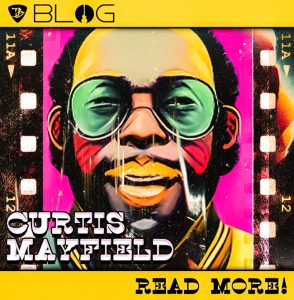
Curtis Mayfield – Influential Soul
Curtis Mayfield – Man With A Mission I think the best word to describe Mayfield would be that he’s resilient. Starting out in life, he
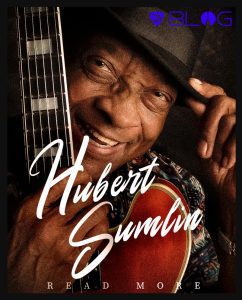
Hubert Sumlin – Electric Blues
Hubert Sumlin – Chicago Blues Hubert Sumlin, a Chicago blues guitarist, and singer that’s known for his slashing guitar solos and his innovative guitar techniques!
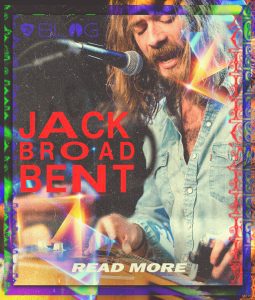
Jack Broadbent – No Boundaries
Jack Broadbent For those of you that are not familiar with Jack Broadbent, he’s all over the place when it comes to the music he
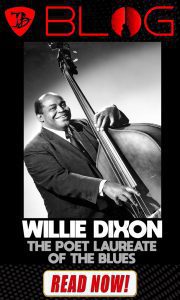
Willie Dixon – Chicago Blues
Willie Dixon – Musician, Songwriter & More! Willie Dixon. Back in the day, he could easily choose whatever he wanted to do. Especially when it
rock-news-today
ALL THE ROCK NEWS YOU WANT IN ONE OF THE RADDEST SPLASH PAGES ON THE WEB!

The Secret Sisters
The Secret Sisters—Laura and Lydia Rogers These two sisters have some of the most hauntingly beautiful vocals that I’ve ever heard! But not only that,
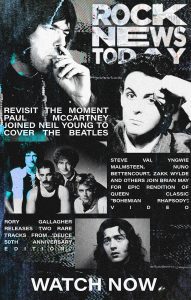
rock news today aug 26
WATCH RECOGNIZED MUSICIANS JOIN BRIAN MAY FOR EPIC RENDITION OF QUEEN CLASSIC “BOHEMIAN RHAPSODY”, VIDEO On August 24, 1975, Queen began recording their immortal anthem,
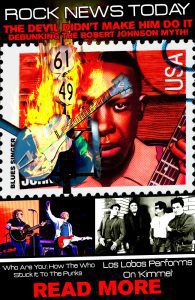
rock news today aug 19
Los Lobos Performs On ‘Kimmel’ Watch the band play “Love Special Delivery” as well as a three-song off-air set. Los Lobos served as the musical

Paul Thorn: From Boxer to Musician and Beyond!
Paul Thorn: From Boxer to Musician and Beyond Paul Thorn has taken a strange but fruitful path in his career as a musician. he
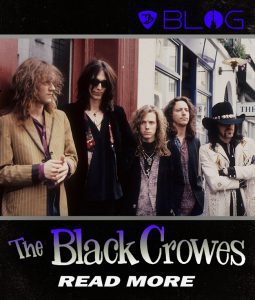
The Black Crowes
The Black Crowes What a radical transformation this band has gone through over the years! For thirty years they have been together forging their way

rock news today aug 12
David Bowie’s ‘Heroes’ To Be Released On Vinyl For 45th Anniversary To celebrate the 45th anniversary of David Bowie’s twelfth studio album Heroes, Parlophone will


